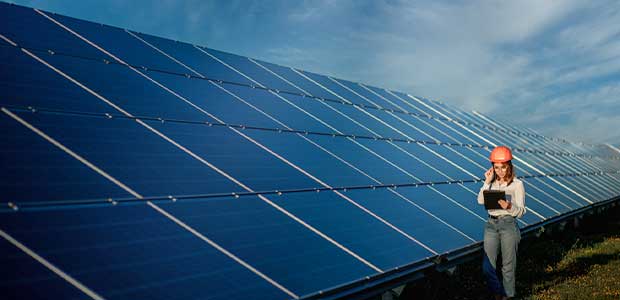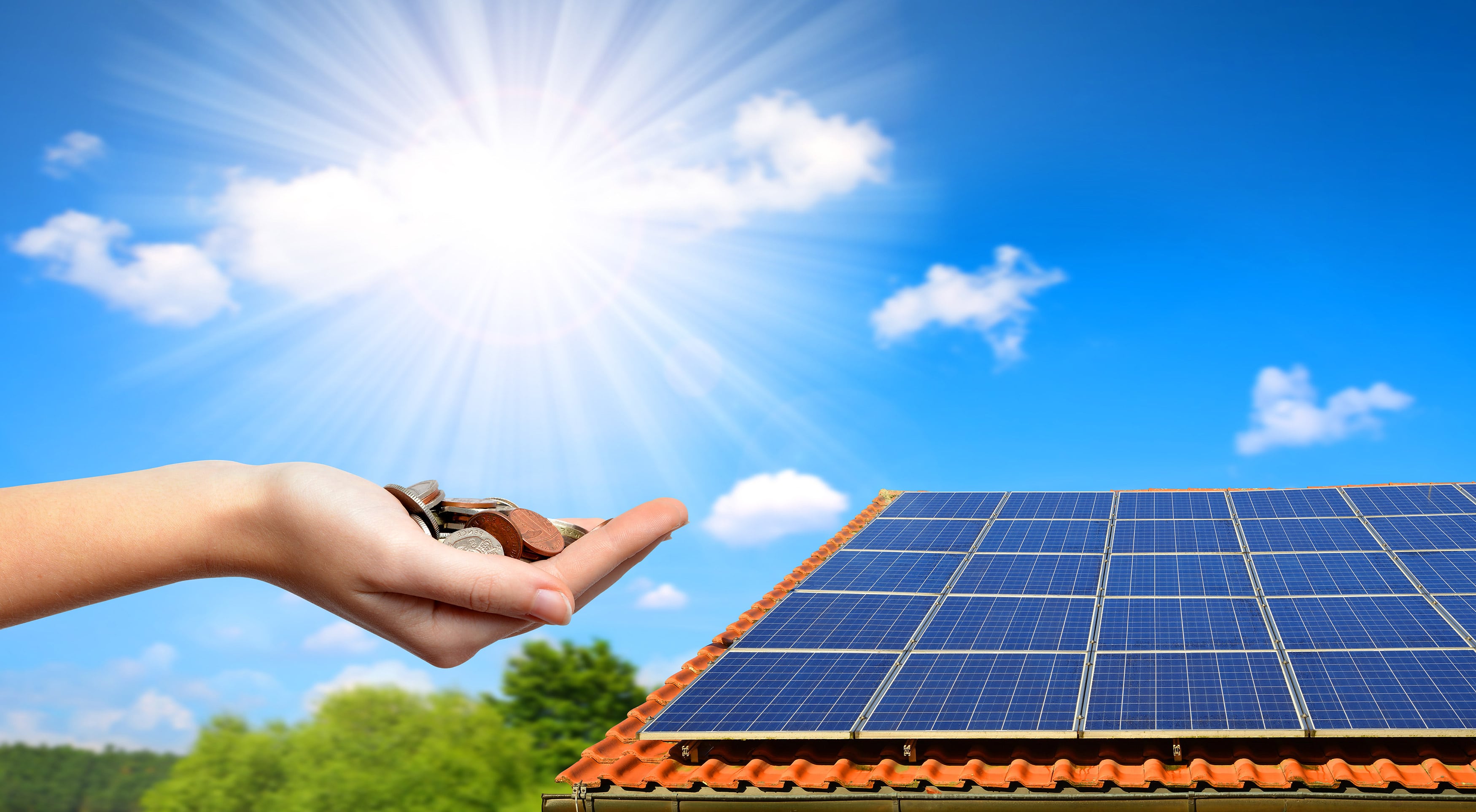Get Reliable Solar Power Solutions from Simply Solar Illinois Today
Get Reliable Solar Power Solutions from Simply Solar Illinois Today
Blog Article
How Solar Power Can Help You Conserve Cash and Minimize Your Carbon Footprint
The assimilation of solar power right into your power portfolio offers a compelling possibility for both financial cost savings and environmental stewardship. As different federal government rewards become available, the question arises: how can one properly navigate the preliminary financial investments and ongoing advantages of solar modern technology to maximize both financial and ecological gains?
Recognizing Solar Energy Cost Savings
While the shift to solar power commonly includes a preliminary investment, understanding solar energy financial savings is essential for home owners and businesses alike. Solar power systems can dramatically reduce electricity bills by harnessing the sunlight's power, equating into significant long-lasting economic advantages. By producing their very own electrical energy, users reduce dependence on grid power, which is subject to changing costs. These financial savings can gather over time, commonly leading to a quick roi.
Moreover, solar energy systems may get different monetary motivations, including tax obligation credit scores and discounts, further boosting their cost-effectiveness. The availability of web metering allows individuals to market excess energy back to the grid, creating an extra income stream. These factors add to the general cost savings connected with solar energy.

In addition to guide monetary cost savings, solar power provides the included advantage of enhancing property value. Homes outfitted with photovoltaic panels are commonly more attractive to purchasers, as they promise lower energy prices - Simply Solar Illinois. Comprehending these components is necessary for anyone thinking about solar power, as it highlights not just the possible monetary gains, however additionally the wider ecological and financial advantages of taking on renewable resource services
Preliminary Costs vs. Long-Term Conveniences
When evaluating solar energy, it is essential to consider the first costs versus the long-term advantages. The in advance financial investment for photovoltaic panels, installation, and associated devices can be considerable, typically ranging from $15,000 to $30,000, depending on the system size and home energy requirements. This first expense might prevent some home owners; nevertheless, it is vital to think about the prospective cost savings with time.
When mounted, solar power systems can substantially reduce and even eliminate monthly power expenses, causing substantial lasting financial benefits. Researches indicate that house owners can conserve anywhere from $10,000 to $30,000 over the lifespan of their planetary system, typically 25 years. Additionally, several states provide motivations, tax credit reports, and rebates that can offset preliminary expenses, making solar much more obtainable.

Lowering Your Carbon Footprint
Minimizing your carbon impact is a critical consideration in today's eco aware society, and taking on solar power is just one of one of the most efficient methods to accomplish this goal. Solar power is a tidy, eco-friendly source that considerably diminishes dependence on nonrenewable fuel sources, which are major factors to greenhouse gas exhausts.

Furthermore, the prevalent fostering of solar innovation urges the development of green work and sustains technologies Web Site in power storage space and efficiency. The even more people and companies spend in solar power, the higher the cumulative reduction in carbon discharges, promoting a cleaner ambience for future generations.
Government Incentives and Discounts
Adopting solar power not just profits the setting yet can also bring about substantial financial cost savings, especially with the schedule of government incentives and refunds. Different federal, state, and neighborhood programs are designed to urge property owners and organizations to buy solar energy systems, making the change a lot more budget-friendly.
One of the most famous rewards is the Federal Investment Tax Credit Scores (ITC), which permits solar system owners to subtract a significant percent of the installation expenses click here to read from their federal taxes. This motivation has been pivotal in reducing the upfront costs connected with solar power systems. Additionally, several states use their own tax debts, gives, and refunds that can better improve savings.
In addition, some city governments provide residential property tax exceptions for solar setups, making sure that homeowners do not face enhanced residential or commercial property taxes as a result of their renewable resource financial investments. Energy companies might also provide incentives, consisting of net metering and feed-in tolls, which permit solar power users to offer excess power back to the grid.
Picking the Right Planetary System
Picking the proper solar system is important for making the most of energy performance and economic benefits. The decision hinges on several aspects, including power requirements, spending plan, and available space. Homeowners need to begin by assessing their power usage to determine the system dimension needed for ideal efficiency.
Following, think about the different kinds of solar modern technologies offered. Simply Solar Illinois. Photovoltaic (PV) panels are one of the most common, transforming sunshine straight into electrical power, while solar thermal systems concentrate on heating water. Each kind has unique advantages depending upon private demands
Spending plan factors to consider are additionally critical. Initial installation costs can vary considerably, so it is necessary to compare quotes from multiple providers and check out financing alternatives. Government motivations and discounts can further lower the financial problem, making planetary systems extra obtainable.
Verdict
The environmental advantages of solar power contribute to sustainable techniques vital for combating climate change. Federal government motivations boost the expediency of solar modern technology fostering, encouraging a shift in the direction of a cleaner, extra financially effective power source.
Report this page